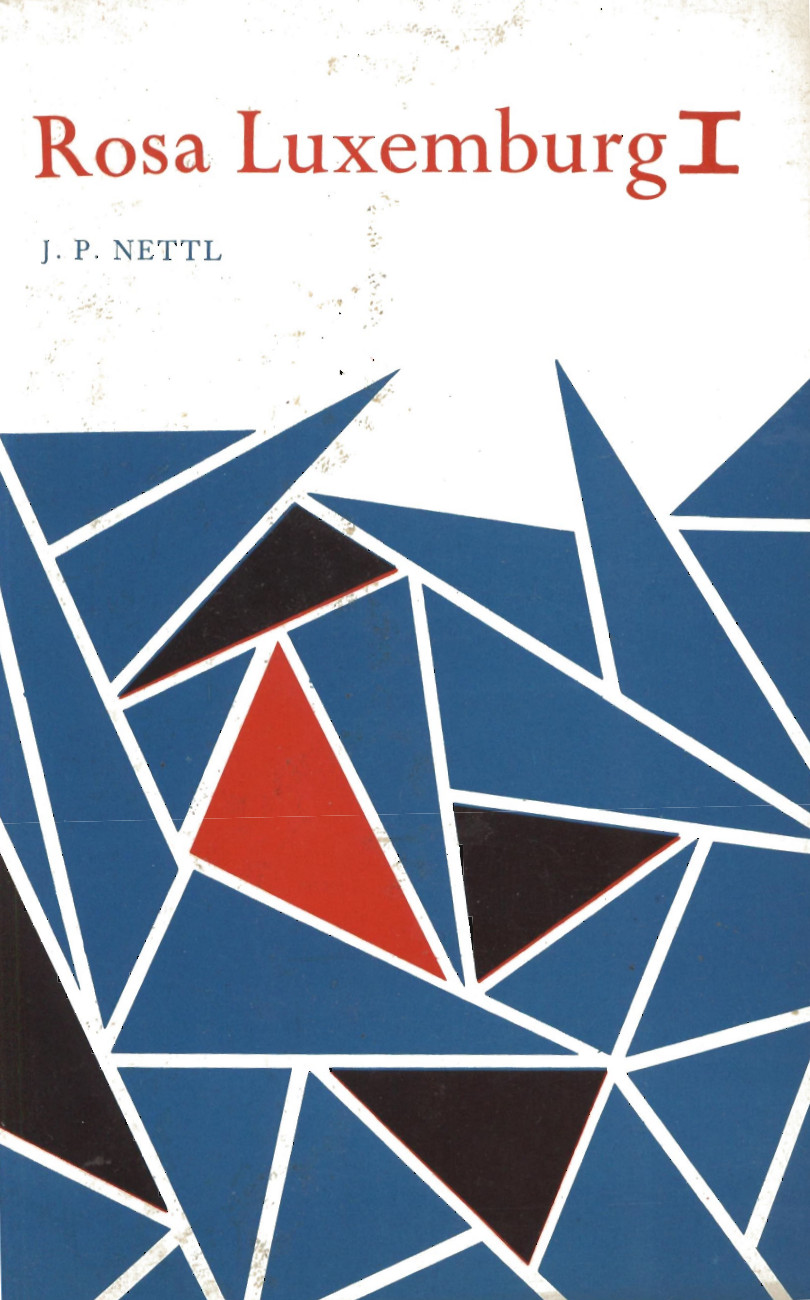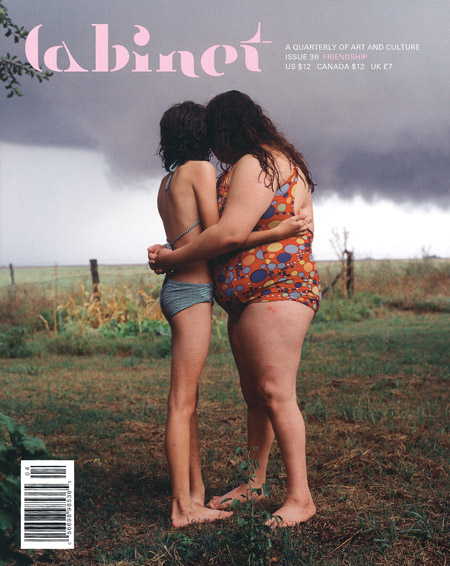J. P. Nettl: Rosa Luxemburg, Vol. 1 (1966)
Filed under book | Tags: · biography, history, marxism, politics, revolution, socialism

The first of 2 volumes of the leading biography of the Marxist theorist, philosopher, economist and revolutionary socialist. Covers the period until 1911.
Publisher Oxford University Press, 1966
450 pages
via Hyeonwoo Kim
Review (Hannah Arendt, The New York Review of Books, 1966)
Review (Robert H. McNeal, The Canadian Journal of Economics and Political Science, 1966)
PDF (17 MB, no OCR)
For a chronology of her life see the exhibition brochure produced by Rosa Luxemburg Stiftung (DE, EN, FR, TR, ES, VN).
Cabinet, 36: Friendship (2010)
Filed under magazine | Tags: · art, culture, friendship, philosophy, psychology, self

“The nature of friendship has been a subject of inquiry from the beginnings of the western philosophical tradition. Socrates considers the question of philia in one of Plato’s earliest dialogues, declaring that his “passion for friends” causes him to value them above even gold. Subsequent thinkers have continued the inquiry, yet friendship remains a phenomenon that “may well be reckoned,” as Emerson wrote, “the masterpiece of nature.”
Issue 36 of Cabinet, with its special section on friendship, features Svetlana Boym on Hannah Arendt’s definition of friendship as freedom from “totalitarianism for two”; Ruben Gallo on Freud’s school friend with whom he communicated mainly in Spanish; and Regine Basha on Sol Lewitt’s exchange of gifts with other artists. Elsewhere in the issue: Paul La Farge on the color black; Kevin McCann on the life and work of schizophrenic author Louis Wolfson, the object of fascination for a generation of French intellectuals; Helen Polson on the fate of lost teeth; Bertell Ollman on his infamous board game Class Struggle; and an artist project by Zoe Bellof.”
Edited by Sina Najafi
Publisher Immaterial Incorporated, New York, Winter 2009/10
HTML
Other issues (articles from sold-out issues are available online)
Peter Sloterdijk: The Art of Philosophy: Wisdom as a Practice (2010/2012)
Filed under book | Tags: · asceticism, epistemology, phenomenology, philosophy, theory

In his best-selling book You Must Change Your Life, Peter Sloterdijk argued exercise and practice were crucial to the human condition. In The Art of Philosophy, he extends this critique to academic science and scholarship, casting the training processes of academic study as key to the production of sophisticated thought. Infused with humor and provocative insight, The Art of Philosophy further integrates philosophy and human existence, richly detailing the foundations of this relationship and its transformative role in making the postmodern self.
Sloterdijk begins with Plato’s description of Socrates, whose internal monologues were so absorbing they often rooted the philosopher in place. The original academy, Sloterdijk argues, taught scholars to lose themselves in thought, and today’s universities continue this tradition by offering scope for Plato’s “accommodations for absences.” By training scholars to practice thinking as an occupation transcending daily time and space, universities create the environment in which thought makes wisdom possible. Traversing the history of asceticism, the concept of suspended animation, and the theory of the neutral observer, Sloterdijk traces the evolution of philosophical practice from ancient times to today, showing how scholars can remain true to the tradition of “the examined life” even when the temporal dimension no longer corresponds to the eternal. Building on the work of Husserl, Heidegger, Nietzsche, Arendt, and other practitioners of the life of theory, Sloterdijk launches a posthumanist defense of philosophical inquiry and its everyday, therapeutic value.
Originally published as Scheintod im Denken, Suhrkamp Verlag, Berlin, 2010
Translated by Karen Margolis
Publisher Columbia University Press, New York, 2012
ISBN 0231158718, 9780231158718
107 pages
PDF (EPUB)
Comment (1)
